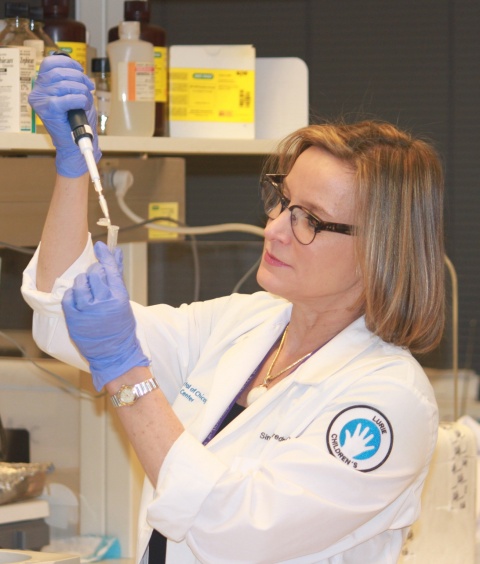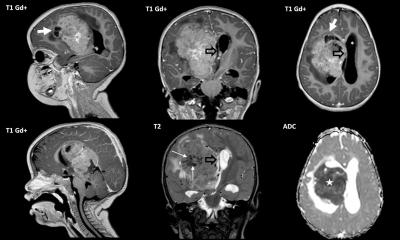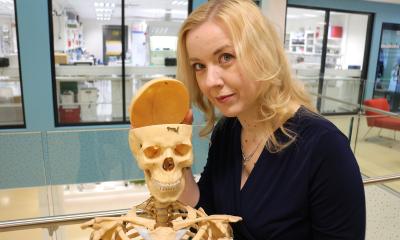News • AT/RT and medulloblastoma
Promising target for treating brain tumors in children
Findings published in Oncotarget offer new hope for children with highly aggressive brain tumors like atypical teratoid/rhabdoid tumor (AT/RT) and medulloblastoma.

Previously, the authors of the study have shown that an experimental drug that inhibits polo-like kinase 4 (PLK4) stopped pediatric brain tumor growth in vitro. Now, they have demonstrated its success in an animal model – the drug shrank the tumor and increased survival. Importantly, the PLK4 inhibitor was able to cross the blood-brain barrier, which means that the drug can target cancer cells in the brain even when taken orally, avoiding the need for injection into the spinal fluid. In this new study, researchers also demonstrated that when they associate a PLK4 inhibitor with traditional chemotherapy drugs, they kill tumor cells with significantly lower drug doses.
This promising treatment strategy may also help us reduce toxicity when used with other chemotherapy agents
Simone Treiger Sredni
“We are very excited with the outcome of this work,” said lead author Simone Treiger Sredni, MD, PhD, Associate Professor of Pediatric Neurosurgery at Northwestern University Feinberg School of Medicine and cancer researcher at the Stanley Manne Children’s Research Institute of Ann & Robert H. Lurie Children’s Hospital of Chicago. “This promising treatment strategy may also help us reduce toxicity when used with other chemotherapy agents.”
In a previous study, Sredni and colleagues were the first to describe PLK4 as a therapeutic target for brain tumors and in pediatric cancer. They found that, in these particular types of tumors, PLK4 regulates tumor growth and the tumor’s tendency to metastasize.
AT/RT is a therapy resistant brain tumor that mostly occurs in infants. Medulloblastoma is the most frequent malignant brain tumor in children and current treatments for it are highly toxic. Both of these types of brain tumors have a high mortality rate. “New targeted therapies are urgently needed for children with AT/RT and medulloblastoma,” said Sredni. “We expect that targeting PLK4 will prove to be an effective and less toxic treatment approach for these children, and we hope to move to a clinical trial soon.”
Source: Ann & Robert H. Lurie Children's Hospital of Chicago
29.11.2017





